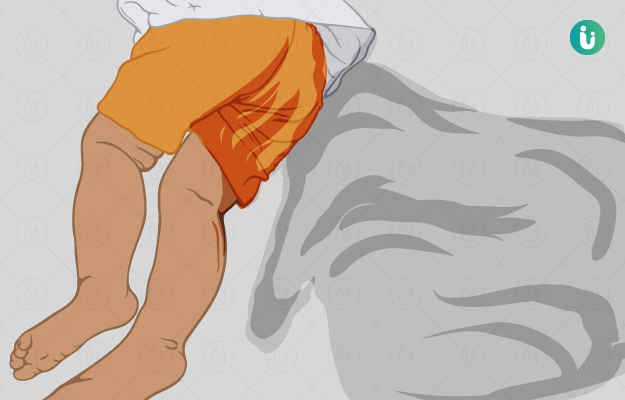What is bedwetting?
Bedwetting, also termed as night-time incontinence or nocturnal enuresis is an involuntary recurrent passage of urine while sleeping. This usually does not occur after around 5 – 7 years of age. It is a common condition seen in school-aged children worldwide. Although bedwetting is common among children and adolescents, it has not been adequately reported in India. The worldwide prevalence is 1.4%-28%. The prevalence in India is found to be 7.61%-16.3%.
What are its main signs and symptoms?
Children usually learn how to use the toilet by the age of 5, but there is no fixed age for attaining complete bladder control. Some kids may face the problem between 5 and 7 years. Signs and symptoms which prompt medical attention include:
- Child wetting the bed after 7 years of age.
- Starts to wet the bed after a few months of no bedwetting at night.
- Bedwetting with painful urination, pink or red urine, excessive thirst, hard faeces or snoring.
What are its main causes?
The causes are ambiguous but the following may be possible factors:
- Small bladder: Bladder may not be fully developed.
- Inability to know that the bladder is full: A full bladder may not awaken the child if the nerves that control the bladder are slow to mature.
- Hormonal imbalance: Some may have inadequate antidiuretic hormone (ADH) to slow urine formation at night.
- Urinary tract infection: Child may have difficulty in controlling urination due to infection. (Read more: UTIs treatment)
- Sleep apnoea: Obstructed breathing during sleep due to inflamed or large tonsils or adenoids.
- Diabetes: Bedwetting may be the first sign of diabetes if your child was usually dry at night.
- Chronic constipation: Prolonged constipation can impair the functioning of the muscles that control both urination and defecation.
- Stress: Fear-induced stress can also trigger bedwetting.
How is it diagnosed and treated?
You may be asked to keep a track of your child’s urination routine and maintain a diary.
Things to note are:
- Urinary frequency
- Stool frequency and consistency
- Bedtime fluid intake
Tests may include:
- Urine culture and analysis: To check for infection, diabetes, traces of blood or any other substances.
- Blood tests: To check for anaemia, diabetes, kidney problems and other conditions.
- Bladder ultrasound: To find how much urine still remains in the bladder after urination.
- Urodynamic testing: To check how the urine is stored and flows.
- Cystoscopy: To check for bladder conditions by inserting a camera in the bladder.
Bedwetting is not a major issue as it signals a child’s development phase, but children may feel embarrassed and have low self-esteem. Parents may find themselves helpless to correct this situation.
Management includes:
- Counselling the parents and the child about bedwetting and reassuring them that it can be cured.
- The doctor may prescribe a medication analogous to ADH which can provide the same effect as ADH and an antidepressant which relaxes the bladder.
Non-drug methods: One can buy products like
- Disposable or reusable absorbent underpants.
- Moisture alarms which turn off when bedwetting occurs.
Self-care tips:
- Try to increase your child’s fluid intake during the day and limit intake in the evening.
- Train your child to go to the washroom before going to sleep.
- Encourage your child each time so that he/she feels comfortable and confident.
- Even if your child urinates, do not scold or punish or else it defeats the purpose.
- Encourage your child to assist you in cleaning the sheets, so he/she feels comfortable.
(Get online doctor consultation for any health issue)

 Doctors for Bedwetting
Doctors for Bedwetting  OTC Medicines for Bedwetting
OTC Medicines for Bedwetting


















